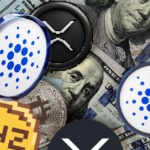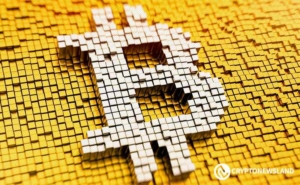- Uniswap, the largest decentralized exchange (DEX) on Ethereum, has introduced its Layer 2 blockchain, Unichain, to improve scalability for decentralized finance (DeFi) applications.
- Unichain will utilize the Optimism Superchain to provide improved liquidity access and greater decentralization across various Layer 2 networks.
On October 10, Uniswap Labs launched Unichain, a rapid, decentralized Superchain L2 designed to serve as a hub for DeFi and liquidity across multiple chains. According to the whitepaper, Unichain aims to tackle significant issues within the Ethereum ecosystem, including high gas fees, inadequate execution quality, and fragmented liquidity.
Following Unichain’s launch, Uniswap’s governance token, UNI, surged, outperforming the broader crypto market with a 15% increase. Over the past week, UNI had risen by 25%, and it was up 23% over the last 30 days. The token’s trading volume spiked by 418%, reaching $583.2 million in a single day highlighting investors’ interest around the project. With a market capitalization of $5 billion, UNI secured the 20th spot in CoinMarketCap’s rankings.
PSA:@unichain testnet is now live on the Uniswap interface
Just enable testnet mode in settings ✨ pic.twitter.com/T7voRRb5fi
— Uniswap Labs 🦄 (@Uniswap) October 12, 2024
On October 13, Michael Nadeau, the founder of The DeFi Report, said on X that Uniswap had generated nearly $1.3 billion in trading and settlement fees across five chains over the past year, yet Uniswap Labs or UNI token holders have captured none of that value. According to Nadeau, 100% of the fees have gone to liquidity providers (LPs), Ethereum validators, MEV bots, and Layer 2 sequencers.
With this transformative shift, UNI token holders will now be able to capture settlement fees that previously amounted to $468 million, which had been directed to Ethereum validators. Additionally, Nadeau emphasized that by controlling the validators on Unichain, Uniswap will seize the opportunity to capture Miner Extractable Value (MEV), which is projected to be worth around $100 million annually. This positions Uniswap to not only retain value within its ecosystem but also strengthen its financial influence over the growing decentralized landscape.
Unichain’s Emergence: The Slow Erosion of Ethereum’s Dominance?
Unichain aims to lower the high transaction costs by 95% and slow speeds commonly associated with the operations on Ethereum. Unichain will implement swift block times of just one second and, through a partnership with Flashbots, will include 250-millisecond sub-blocks, offering users a near-instant transaction experience. This feature, when compared to Ethereum’s slower block times, gives Unichain a significant edge in user satisfaction.
As DeFi users increasingly demand faster, cheaper transactions, this benefit could divert activity away from Ethereum, especially as Unichain is integrated into the Optimism Superchain. Many decentralized finance (DeFi) projects and users may migrate to this new chain for its faster transaction speeds and lower costs. This could lead to a reduction in liquidity and transaction volume on Ethereum, potentially increasing slippage and reducing market efficiency for Ethereum-based assets.
As users move to Unichain, Ethereum could face lower network activity, which may result in fewer validators. This could make Ethereum’s gas fees less competitive compared to Unichain’s low-cost structure, making Ethereum transactions more expensive
Ethereum has historically been the hub of DeFi innovation. However, Unichain’s ability to offer nearly instant transactions and its interoperability with Layer 2 solutions might lead to a gradual shift of cutting-edge projects away from Ethereum.
According to our data, Uniswap’s trading volume has increased by 35.53% over the last 24 hours with a market cap of $4.7 billion, with buying pressure yet to cool down since Unichain’s launch. Despite its 1.7% price drop in the last 24 hours, sentiments remain bullish. UNI is currently trading at $7.82. The hype around Uniswap right now is evident in the numbers and hopefully, it will see a significant price pump soon.









